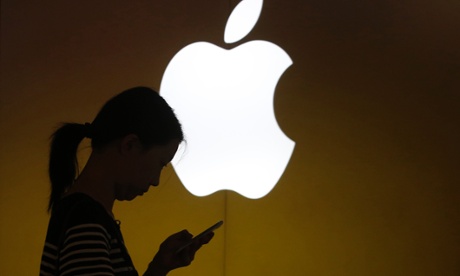
Apple has published its first report revealing the number and type of requests for information about users and devices from governments around the world, showing the US dominating the requests.
The report (pdf), published on the company's website on Tuesday, complained about US restrictions on what it could reveal and promised customers that Apple did its best to protect personal data.
"We have no interest in amassing personal information about our customers," the company said. "We protect personal conversations by providing end-to-end encryption over iMessage and FaceTime. We do not store location data, Maps searches, or Siri requests in any identifiable form."
Of 31 countries listed, the US outweighed all other governments combined in seeking information about more than 2,000 accounts, followed by Britain with 141, Spain with 104 and Germany with 93. Canada, China and Norway each made six requests.
Apple complained that US restrictions prevented it from disclosing the precise number of national security orders and number of accounts affected by such orders. Figures for the US were given within ranges of 1,000. It said: "We strongly oppose this gag order, and Apple has made the case for relief from these restrictions in meetings and discussions with the White House, the US attorney general, congressional leaders and the courts.”
The Cupertino-based technology giant said it would continue pushing for the right to disclose information which satisfied customers' right to know how often and under what circumstances the company supplied data to law enforcement agencies.
The Electronic Frontier Foundation, a San Francisco-based transparency advocacy group, welcomed the report as evidence technology giants were responding to calls for greater accountability. “It's a good sign that transparency reports are becoming the industry standard,” said Nate Cardozo, the group's staff attorney. The fact it came from Apple, famous for Kremlin-style opaqueness, made it even more welcome, he said. “It's an excellent first step towards Apple becoming more transparent to their customers.”
Apple recently joined Facebook, Google and other tech companies in demanding substantial reforms to US government surveillance programmes following NSA whistleblower Edward Snowden's revelation that the National Security Administration was tapping their communication links.
Tuesday's report made a thinly veiled reference to its rivals, noting Apple's business model "does not depend on collecting personal data”.
Cardozo said the report set an important precedent in explicitly stating it had never received an order under section 215 of the USA Patriot Act, a wide-ranging, controversial provision which usually compels silence from companies about being probed for information.
If subsequent reports made no mention of section 215 requests, it could be assumed such requests had in fact been made, acting as a silent alarm “canary”, said Cardozo. “This is extremely important. No other company has done this.”
Apple vowed to challenge such an order if one was served.
The EFF attorney also commended Apple for not automatically complying with government information requests. According to the report, Apple supplied data in response to 37% of British government account requests. It supplied data to 22% of Spanish requests, and just 6% of German requests. The lack of precise numbers for US requests meant no percentage could be given.
In addition to dominating requests for account information the US also led the field in device information requests, which often come from law enforcers investigating theft. The US registered 3,542 requests, ahead of Germany, with 2,156 and Singapore, with 1,498.
• This story was amended on 8 November to correct the name of the Electronic Frontier Foundation.

